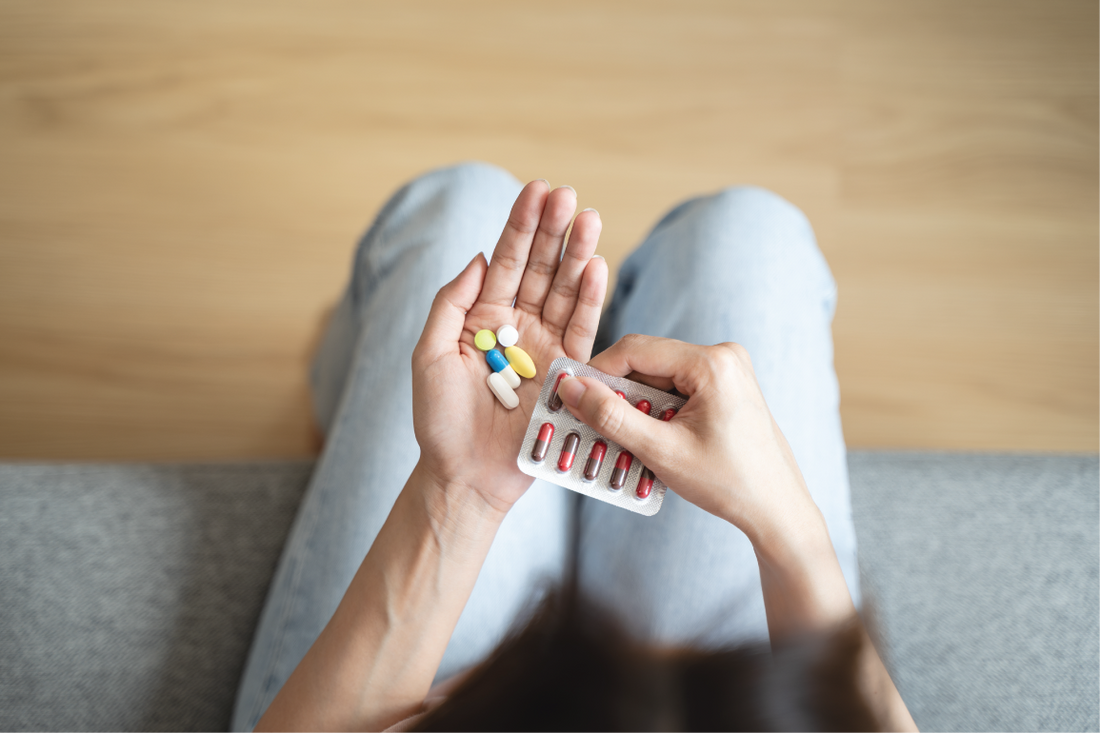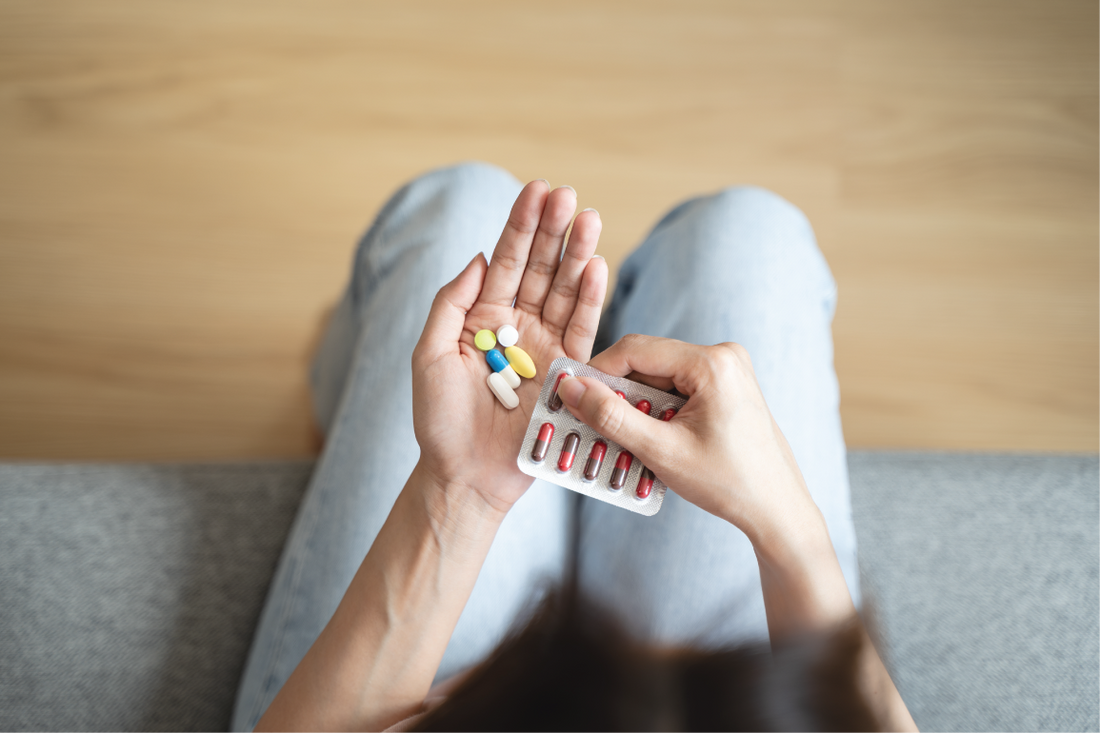
Over the Counter (OTC) Drugs
Daniel PattersonOver the Counter (OTC) drugs, commonly used to treat symptoms like coughs, allergies, and minor pain, are easily accessible and typically viewed as safe. However, these medications are increasingly misused by teens, driven by various pressures and social influences. Understanding the motivations behind this misuse can help parents and guardians take steps to prevent it.
Why Teens Misuse OTC Drugs
There are several motivations behind teens' misuse of OTC drugs. From coping with stress to seeking euphoria, these factors highlight how teens perceive and approach OTC medications.
-
Curiosity and Peer Pressure
Teenagers are naturally curious and may experiment with substances as a means of exploration or self-expression. Peer pressure is also a strong motivator; if teens see friends or acquaintances misusing OTC drugs, they may feel compelled to try it themselves. According to the National Institute on Drug Abuse (NIDA), social circles and peer influence significantly impact drug use patterns, particularly when substances are perceived as "low risk" or "safe" because they’re legal. -
The Influence of Social Media and Pop Culture
Social media platforms like TikTok, Instagram, and YouTube feature content where influencers and users discuss experiences with substances, including OTC drugs. For instance, “challenges” and trends centered around OTC medications have surfaced, such as the “Benadryl challenge,” where teens consume excessive amounts of antihistamines to induce hallucinations. This exposure glamorizes OTC drug misuse, creating a false sense of security around these products. According to a 2022 study by JAMA Pediatrics, teens exposed to substance-related content on social media are more likely to experiment with drugs.
Additionally, some celebrities and musicians have openly discussed using codeine-based cough syrups or other OTC substances to achieve a high, often without mentioning the risks. These portrayals in music, lyrics, and movies contribute to a narrative that minimizes the dangers of these drugs. -
Euphoria and Hallucinations
Certain OTC drugs, especially those containing dextromethorphan (DXM), can produce euphoria or mild hallucinations when taken in large quantities. This appeal of a “high” without needing illicit drugs can draw teens toward misusing products like cough syrups and cold medicines. Known colloquially as “robotripping,” the use of DXM-laden cough medicine has led to a concerning trend in which teens seek a dissociative experience that feels safer due to the OTC nature of the drug. -
Stress, Anxiety, and Sleep Problems
Academic, social, and personal pressures can cause stress and anxiety in teens, who may turn to OTC medications as a coping mechanism. Antihistamines and sleep aids are often misused to help teens “shut down” or relax in response to stress. According to the American Psychological Association (APA), many teens today report high levels of stress, and some self-medicate with easily accessible drugs. This behavior can quickly become habitual, as the calming effects of these medications are often short-lived, leading to repeated misuse. -
Body Image Concerns
For some teens, especially young women, the appeal of appetite suppression with certain medications—like antihistamines or decongestants—ties into body image concerns. These teens might misuse these drugs to skip meals or lose weight, perpetuating unhealthy cycles related to self-image and control. The Centers for Disease Control and Prevention (CDC) has noted a rise in disordered eating behaviors among teens, and misuse of OTC drugs for weight control can be an extension of these issues. -
Avoiding Detection
Unlike illicit substances, OTC drugs are legal and more accessible, which may lead teens to assume they are safer and harder to detect. Some teens turn to OTC drugs to achieve desired effects without drawing suspicion from parents or school authorities, as these drugs are easier to obtain and hide.
Health Risks of OTC Drug Misuse
While OTC drugs are safe when used responsibly, misuse can lead to severe health issues. Common health risks include:
- Physical Health Risks: High doses of cough medicine can depress the central nervous system, leading to respiratory issues, heart problems, and even death. Pain relievers like acetaminophen can cause liver damage, while excessive use of ibuprofen can lead to gastrointestinal bleeding.
- Mental Health Impacts: Misusing antihistamines or sleep aids can lead to confusion, mood swings, and, in severe cases, psychosis. Repeated misuse can impair cognitive function and increase anxiety and depression.
- Risk of Overdose: Many teens are unaware of the potency of these drugs, leading to accidental overdose. Symptoms of overdose can include extreme drowsiness, difficulty breathing, and seizures, which require immediate medical attention.
Signs of OTC Drug Misuse
Parents should watch for the following signs that may indicate OTC drug misuse:
- Physical Symptoms: Look for changes like dilated pupils, slurred speech, dizziness, and unexplained drowsiness. Frequent nosebleeds or a persistent cough may also signal misuse, especially if cough medications are involved.
- Behavioral Changes: Teens misusing OTC drugs may exhibit increased secrecy, changes in academic performance, or withdrawal from social activities. They may frequently ask for money or suddenly seem uninterested in hobbies.
- Emotional Instability: Mood swings, irritability, and sudden bursts of anger or sadness can result from drug misuse. Teens may also experience heightened anxiety, depression, or even paranoia after frequent misuse.
Preventing OTC Drug Misuse at Home
To help prevent misuse, parents can take the following steps:
- Secure Medications: Keep OTC medications in a secure place and monitor the quantities. Dispose of expired or unused drugs to limit access.
- Educate Your Teen on Risks: Talk openly about the dangers of OTC drug misuse, emphasizing that “legal” or “safe” drugs can still be harmful if misused. Discuss the risks of addiction and overdose to dispel the myth that OTC drugs are harmless.
- Monitor for Behavioral Changes: Keep an eye on shifts in behavior, especially if your teen seems secretive or begins exhibiting signs of withdrawal. Don’t hesitate to ask questions if you notice unusual symptoms or if medications go missing.
- Encourage Healthy Coping Mechanisms: Teens may misuse drugs due to stress, anxiety, or sleep issues. Encourage them to explore healthier ways of managing stress, such as exercise, meditation, or talking to a counselor.
Conclusion
While over-the-counter medications are safe when used responsibly, their misuse among teens is a growing concern. By staying vigilant, educating teens about the dangers, and promoting healthy coping mechanisms, parents can play a vital role in preventing OTC drug misuse and protecting their teens’ health and well-being.
References
- National Institute on Drug Abuse. (2020). "Misuse of Over-the-Counter Cough and Cold Medications by Teens."
- JAMA Pediatrics. (2022). "Influence of Social Media on Adolescent Substance Use."
- American Psychological Association. (2021). "Teen Stress and Coping Mechanisms."
- Centers for Disease Control and Prevention. (2021). "Youth and OTC Drug Abuse: Emerging Trends."
- American Academy of Pediatrics. (2021). "Risks of Over-the-Counter Drug Misuse in Adolescents."











